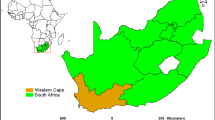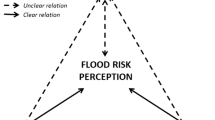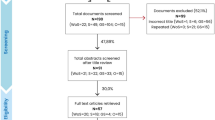Abstract
This paper considers the perceptions and responses of selected stakeholders to a very low probability but high consequence climatic ‘surprise’—a scenario of rapid collapse of the West Antarctic ice sheet, producing a global rise in sea-level of 5 m over 100 years. It uses a case study of the Thames Estuary, UK, including London. Through a process of dialogue involving one-to-one interviews and a 1-day policy exercise, we addressed influences on decision-making when information is uncertain and our ability to plan, prepare for and implement effective ways of coping with this extreme scenario. The interviews and policy exercise explored plausible responses to the scenario and identified weaknesses in flood management approaches to dealing with such an occurrence. The analysis shows that an extreme scenario could be highly challenging, even for an area with well-developed institutions. Participants favoured two options (a) reconfiguring London around the rising water, and (b) building a new downstream barrier which would allow London to continue as today. The lack of consensus suggests the potential for policy paralysis in response to what is a highly uncertain phenomena—this could lead to a forced, unplanned response as the rapid change overwhelmed the existing defence capability. Hence, low probability, high consequence climatic events may challenge our existing institutions. Adaptive management is presented as an approach which could address this challenge.
Similar content being viewed by others
References
Adger WN, Agrawala S, Mirza MMQ, Conde C, O’Brien K, Pulhin J, Pulwarty R, Smit B, Takahashi K (2007) Assessment of adaptation practices, options, constraints and capacity. Climate Change 2007: impacts, adaptation and vulnerability. In: Parry ML, Canziani OF, Palutikof JP, van der Linden PJ, Hanson CE (eds) Contribution of working group II to the fourth assessment report of the intergovernmental panel on climate change. Cambridge University Press, Cambridge, UK, pp 717–743
Association of British Insurers (2004) Turning back the tide: the case for sustaining investment in flood management and defences. ABI, London
Bowen AJ (1972) The tidal regime of the River Thames: long term trends and their possible causes. Philos Trans R Soc Lond A 272:187–199
D’Olier B (1972) Subsidence and sea-level rise in the Thames Estuary. Philos Trans R Soc Lond A 272:121–130
Data Management and Analysis Group (DMAG) (2005) London’s changing population: diversity of a world city in the 21st Century. DMAG Briefing 2005/39, November 2005
Dawson RJ, Hall JW, Bates PD, Nicholls RJ (2005) Quantified analysis of the probability of flooding in the Thames Estuary under imaginable worst case sea-level rise scenarios. Int J Water Resour Dev 21(4):577–591
DEFRA (2001) National appraisal of assets at risk from flooding and coastal erosion, including potential impact of climate change. Flood and Coastal Defence with Emergencies Division, London
DEFRA (2005) Making space for water: taking forward a new government strategy for flood and coastal erosion risk management in England. First Government response to the autumn 2004 making space for water consultation exercise, March, DEFRA, London
Dessai S, Hulme M (2007) Assessing the robustness of adaptation decisions to climate change uncertainties: a case study on water resources management in the East of England. Glob Environ Change 17(1):59–72
Dovers SR, Handmer JW (1992) Uncertainty, sustainability and change. Glob Environ Change 2(4):262–276
Dovers SR, Handmer JW (1995) Ignorance, the precautionary principle, and sustainability. Ambio 24:92–97
Evans EP, Ashley R, Hall JW, Penning-Rowsell EC, Saul A, Sayers PB, Thorne CR, Watkinson A (2004) Foresight flood and coastal defence project: scientific summary: volume 2, managing future risks. Office of Science and Technology, London
Gilbert S, Horner R (1984) The Thames barrier. Thomas Telford, London
Greater London Authority (2004) The London plan: spatial development strategy. GLA, London. www.london.gov.uk
Gregory JM, Huybrechts P, Raper SCB (2004) Threatened loss of the Greenland ice-sheet. Nature 428:616
Hall JW (2007) Probabilistic climate scenarios may misrepresent uncertainty and lead to bad adaptation decisions. Hydrol Process 21:1127–1129
Handmer JW, Dovers SR (1996) Typology of resilience. Organ Environ 9(4):482–511
Hulme M (2003) Abrupt climate change: can society cope? Philos Trans R Soc Lond A 361:2001–2021
Hulme M, Jenkins GJ, Lu X, Turnpenny JR, Mitchell TD, Jones RG, Lowe J, Murphy JM, Hassell D, Boorman P, Mcdonald R, Hill S (2002) Climate change scenarios for the United Kingdom: the UKCIP02 scientific report. Tyndall Centre for Climate Change Research, Norwich
ICE (Institute of Civil Engineers) (1954) Conference on the North Sea floods of 31st January to 1st February 1953. Institute of Civil Engineers, London
IPCC (Intergovernmental Panel on Climate Change) (2007) Summary for policy makers, working group I. IPCC, Geneva
Johnson CL, Tunstall SM, Penning-Rowsell EC (2004) A model of incremental and catalytic policy change: from land drainage to flood risk management. Flood Hazard Research Centre, Endfield
Kelly MP (1991) Global warming: implications for the Thames Barrier and associated defences. In: Frasetto R (ed) Impact of sea-level rise on cities and regions. Proceedings of the first international meeting ‘cities on water’, Venice 1989. Marsilio Editori, Venice, pp 93–98
Klein RJT, Nicholls RJ, Thomalla F (2002) The resilience of coastal megacities to weather-related hazards: a review. Workshop “The future of disaster risk: building safer cities”, Disaster Management Facility, World Bank, Washington, DC, USA, 4–6 December 2002, 21 pp
Lavery S, Donovan B (2005) Flood risk management in the Thames Estuary: looking ahead 100 years. Philos Trans R Soc Lond A 363:1455–1474
Lempert R, Popper SW, Bankes SC (2003) Shaping the next one hundred years: new methods for quantitative, long-term policy analysis. RAND, Santa Monica CA
Lowe JA, Gregory JM (2005) The effects of climate change on storm surges around the United Kingdom. Philos Trans R Soc Lond A 363:1313–1328
Mastrandrea MD, Schneider SH (2001) Integrated assessment of abrupt climatic changes. Climate Policy 1(4):433–449
McMichael AJ (1993) Planetary overload: global environmental change and the health of the human species. Cambridge University Press, Cambridge
McRobie A, Spencer T, Gerritsen H (2005) The big flood: North Sea storm surge. Philos Trans R Soc Lond A 363:1261–1491
Mercer JH (1978) West Antarctic Ice Sheet and CO2 greenhouse effect: a threat of disaster. Nature 271:321–325
Nicholls RJ, Hoozemans FMJ, Marchand M (1999) Increasing flood risk and wetland losses due to global sea-level rise: regional and global analyses. Glob Environ Change 9:S69–S87
Nicholls RJ, Tol RJ, Vafeidis AT (2008) Global estimates of the impact of a collapse of the West Antarctic Ice Sheet. Clim Change (special issue)
ODPM (Office of the Deputy Prime Minister) (2004) Greening the gateway. ODPM, London. http://www.odpm.gov.uk/
Ornstein J, Ehrlich P (1989) New world, new mind: changing the way we think to change our future. Methuen, London
Parker DJ (2007) Evaluating business interruption losses caused by flooding. In: Penning-Rowsell EC (ed) The flood threat to London. The Lighthill Trust, London
Parker DJ, Penning-Rowsell EC (2002) The case for flood protection for London and the Thames Gateway. Flood Hazard Research Centre, Enfield
Penning-Rowsell EC, Chatterton JB, Wilson T, Potter E (2002) Autumn 2000 floods in England and Wales, assessment of national economic and financial losses, Draft Final Report to the Environment Agency, Flood Hazards Research Centre, Enfield
Penning-Rowsell EC, Green CH, Thompson PM, Coker AC, Tunstall SM, Richards C, Parker DJ (1992) The economics of coastal management: a manual of benefit assessment techniques. Belhaven, London
Penning-Rowsell EC, Johnson C, Tunstall SM, Tapsell SM, Morris J, Chatterton JB, Green CH (2005) The benefits of flood and coastal risk management: a manual of assessment techniques. Middlesex University Press, London
Pretty JN, Guijt I, Thompson J, Scoones I (1995) Participatory learning and action: a trainers guide, IIED participatory methodology series. IIED, London
Ramsbottom D, Lavery S (2007) The Thames Estuary: the Environment Agency’s flood management planning to 2100. Proceedings of the 42nd flood and coastal management conference, York, July 2007, DEFRA/EA Paper 06-1. Defra, London
Rapley C (2005) Presentation to “Avoiding dangerous climate change: a scientific symposium on the stabilisation of greenhouse gases”. Hadley Centre for climate prediction and research, Met Office, Exeter 1–3 February 2005. Met Office, Exeter
Ravetz J (1990) Knowledge in an uncertain world. New Sci 1735:2
Schneider SH, Chen RS (1980) Carbon dioxide warming and coastline flooding: physical factors and climatic impact. In: Hollander JM, Simmons MK, Wood DO (eds) Annual review of energy, vol 5, pp 107–140
Shennan I, Horton B (2002) Holocene land- and sea-level changes in Great Britain. J Quat Sci 17:511–526
Shih S, Nicholls RJ (2008) Urban managed realignment for the Thames Estuary. J Coast Res (in press)
Smithson MJ (1989) Ignorance and uncertainty: emerging paradigms. Cognitive Science Series. Springer, New York
TGLP (Thames Gateway London Partnership) (2002) Response to the draft London Plan. TGLP, London. http://www.thames-gateway.org.uk/aboutus/downloads.shtml
Tol RSJ, the ATLANTIS Team (2008) Adapting to five metres of sea level rise. Clim Change (special issue)
Tol RSJ, Bohn MT, Downing TE, Guillerminet ML, Hizsnyik E, Kasperson RE, Lonsdale K, Mays C, Nicholls RJ, Olsthoorn AA, Pfeifle G, Poumadere M, Toth FL, Vafeidis AT, van der Werff P, Yetkiner IH (2006) Adaptation to five metres of sea level rise. J Risk Res 9:467–482
Toth FL, Hizsnyik E (2008) Managing the inconceivable: participatory assessments of impacts and responses to extreme climate change. Clim Change (special issue)
Vaughan DG, Spouge JR (2002) Risk estimation of the collapse of the West Antarctic Ice Sheet. Clim Change 52(1–2):65–91
Watson RT, the Core Writing Team (eds) (2001) Climate change 2001: synthesis report: a contribution of working groups I, II and III to the third assessment report of the intergovernmental panel on climate change. Cambridge University Press, Cambridge
Woodworth PL (1990) A search for acceleration in records of European mean sea-level. Int J Climatol 10:129–143
Author information
Authors and Affiliations
Corresponding author
Rights and permissions
About this article
Cite this article
Lonsdale, K.G., Downing, T.E., Nicholls, R.J. et al. Plausible responses to the threat of rapid sea-level rise in the Thames Estuary. Climatic Change 91, 145–169 (2008). https://doi.org/10.1007/s10584-008-9483-0
Received:
Accepted:
Published:
Issue Date:
DOI: https://doi.org/10.1007/s10584-008-9483-0




